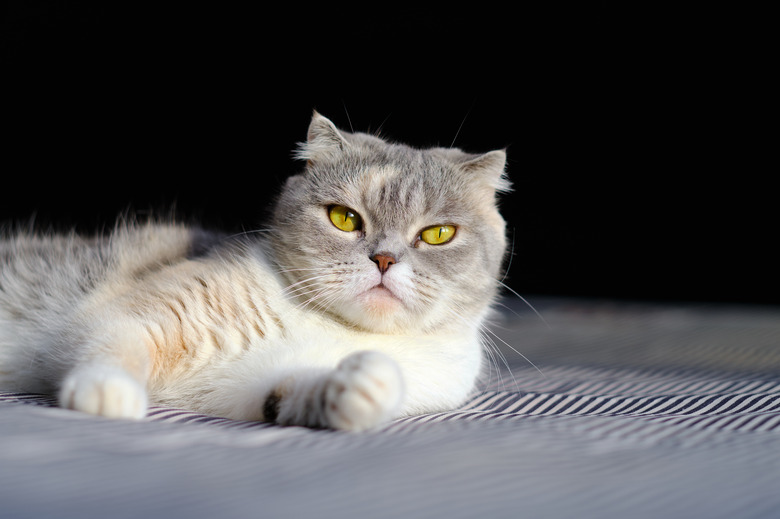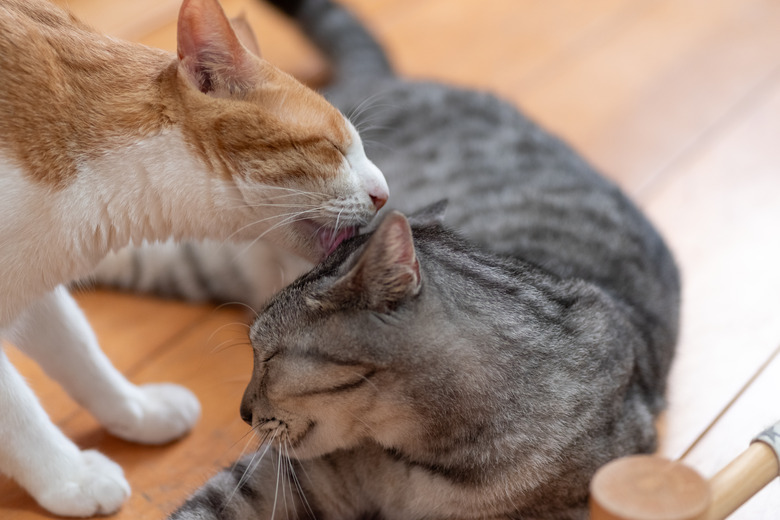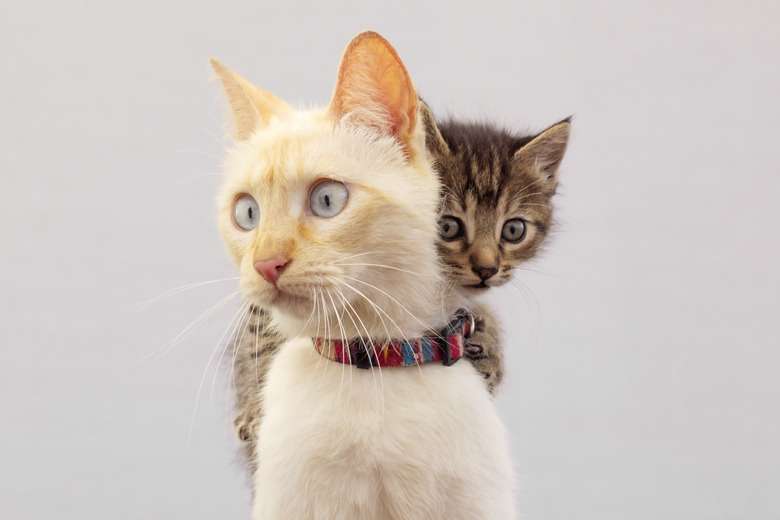A New Study Explains Cat Facial Expressions — All 276 Of Them!
Ever feel like your cat might be making faces at you? If you have, you aren't wrong! In fact, they can conceivably make up to 276 faces at you, according to a new study published in Behavioural Processes. If you're wondering how an animal with no eyebrows and an average head size that measures no more than four inches in diameter can make hundreds of different faces, read on to hear about the exciting recent research that indicates new ideas about feline domestication.
Feline faces and composition
Feline faces and composition
In the 2023 study, two researchers, Lauren Scott, and Brittany Florkiewicz, examined 53 adult domestic shorthair felines at the Los Angeles, California, establishment, CatCafé Lounge. The duo used the Facial Action Coding System for cats to measure unique facial movements in both affiliative, or bonding, and non-affiliative contexts. They looked at how complex their facial muscle movements were, as well as the overall composition of the cats' heads, ear positions, whiskers, and pupil sizes. After reviewing nearly 200 minutes of video, they documented 276 distinct facial expressions among the cats, and more than half of them were done for building social bonds among them.
Different facial expressions recorded
Different facial expressions recorded
It's not hard to measure when cats are using their body language to express unfriendly or even aggressive signals toward another animal, be that a fellow feline, a dog, or a human. It makes sense that cats would act this way because of their comparatively small stature in these cases, and because cats don't really need to rely on one another for survival. In this study, cats of both sexes, all of whom were spayed and neutered, were shown to express assertive or aggressive behaviors about 48.5% of the time. The majority of the time, the cats displayed positive, friendly behaviors to help grow and nurture social bonds more than half of the time.
The friendly expressions appeared as closed eyes with both the ears and whiskers positioned forward on the head, according to a report from CNN. Non-friendly facial signals included ears flattened against the head, narrow pupils, and lip-licking to signal that other cats should stay away. The affiliative, or friendly, signals may be recent adaptations to cats' facial expressions due to things like cohabitation within the same home, feral colonies where multiple cats are fed and housed together, and overcrowding in heavily populated cities. As none of these would likely happen among wild cats, the research team's findings suggest that domestication likely has a huge part in how and why pet cats make so many faces.
Cat body language
Cat body language
The body language of cats has long been heralded as the go-to language for understanding cat communication — both among feline friends and between felines and humans. Anyone who's lived with a cat has seen examples of this, including hissing, switching or tapping their tails, slow blinking, purring, and meowing, to name a few. Cats are generally solitary creatures, and many wildcat species don't really live in packs or groups in the wild. Thanks to domestication, housecats are subjected to far more cat-to-cat interaction than their wild ancestors were, which has forced them to develop more complex ways of communicating with one another. Because domesticated cats live in such close proximity to people, it's not out of the question that they've adapted to communicate in similar ways that we do, as evidenced by their preference toward people who use so-called "baby talk" when addressing them.
The bottom line
The bottom line
Domesticated cats can make up to 276 distinct facial expressions, and more than half of them are used to form positive and productive social bonds with other cats around them. Examples of friendly cat facial expressions include forward-facing whiskers and ears, and closed eyes, or eyes that blink slowly, which suggests that a cat is comfortable with those around them. While there's still more work to be done in the area of understanding cat communication, this research makes huge strides in measuring the effects of domestication on our feline friends.


